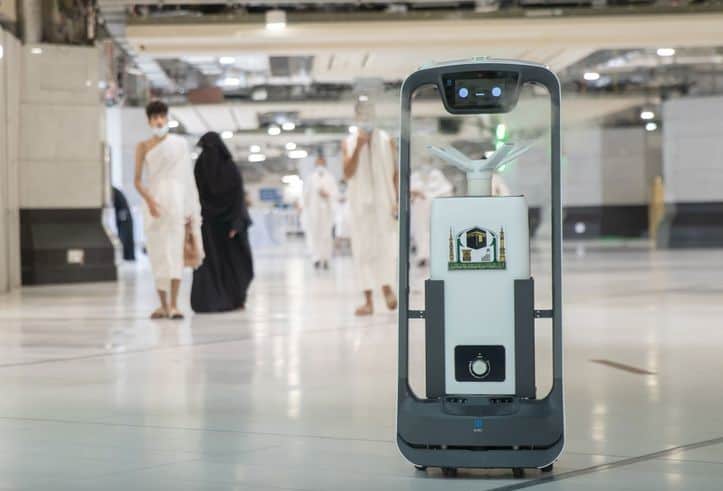-
The robots can work between five and eight hours without any human intervention
-
They have a capacity of 23.8 liters of sterilizers with a consumption rate of 2 liters per hour to eliminate bacteria over 600 square meters
Ten smart robots have joined sterilization operations at the Grand Holy Mosque, also known as the Great Mosque of Mecca in Saudi Arabia, one of the holiest pilgrimage sites of Islam, said local reports.
The robots have reportedly been provided by the General Presidency for the Affairs of the Grand Holy Mosque and the Prophet’s Holy Mosque. The latter precinct is the other important mosque for Muslims, and is located in Medina.
Together, these two mosques form the visiting spots for Hajj, an annual pilgrimage that contributes billions to Saudi Arabia’s economy.
Some estimates say the pilgrimage raked in $12 billion in 2019, which translates roughly to 7% of the kingdom’s Gross Domestic Product that year, or around 20% of its non-oil GDP.
However, the Covid-19 pandemic forced the authorities to limit Hajj in 2020 to just the residents of Saudi Arabia, which majorly impacted its economy.
That may change with the introduction of these robots.
The new devices reportedly use a control system programmed on a preinstalled map with six levels that contribute to protecting the environment and smart analysis of sterilization requirements according to various usage scenarios and course of sterilization.
The robots can apparently work between five and eight hours without any human intervention.
They reportedly have a capacity of 23.8 liters of sterilizers with a consumption rate of 2 liters per hour to eliminate bacteria in an area of 600 square meters.








